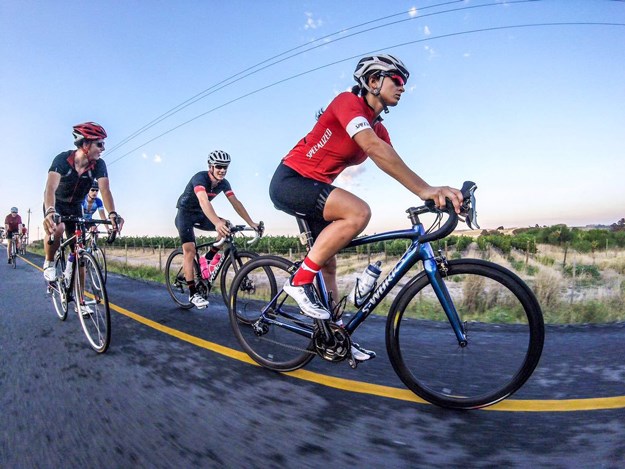
Top stories





Energy & MiningGlencore's Astron Energy gears up with new tanker amidst Sars dispute
Wendell Roelf 13 hours

More news

















Logistics & Transport
Uganda plans new rail link to Tanzania for mineral export boost










“The only benefit you can gain a week before the race is from allowing your body to rest and replenish after the weeks you’ve spent training, and to ensure you’re maintaining a good diet and keeping hydrated,” says van der Merwe.

Many people are under the impression that stepping up the intensity and frequency of training sessions is necessary the closer they get to the race. However, van der Merwe encourages cyclists to decrease the amount of training done in this time, especially a week before and on race day. “You should actually be doing 30% less to help your body recover from the stress of training and ensure you perform well on race day. The last thing you want is to lose strength and endurance as a result of overdoing it.”
“Diet depends entirely on the individual, but don’t try to change your diet or meal times at the last minute, as this could have a negative impact on your metabolism and energy levels while racing,” says van der Merwe.
She recommends eating more natural, fibre-rich, plant-based foods for sustained energy, but to avoid eating anything that your body is unfamiliar with. “I usually eat oats three hours before a big race, but protein-rich cereals and foods that are free from any type of preservatives are also a good idea – just be sure you don’t give your body a shock with foods that you don’t usually eat.”
Hydration is necessary to keep you in good health when training and performing at your peak on race day. While there are many energy gel products on the market that deliver quick energy spikes, van der Merwe recommends that riders avoid these and focus instead on building good hydration during the training process.
“It’s vital to hydrate before, during and after training. I take hydration tablets, which contain electrolytes, vitamins and minerals to help while I’m on the bike. These are a healthier option for cyclists and help me to get past energy slumps while riding.”
As you reach the final stages of a strict and strenuous training routine for the CTCT, it’s important to pay attention to what your body needs in order to avoid injuring yourself and causing any permanent damage. Make sure you’re getting plenty of sleep each night, and don’t starve yourself or, on the other hand, over eat ahead of race day, says van der Merwe.
“Many first-time cyclists feel obliged to push themselves to the point of exhaustion, but, as the saying goes, ‘everything in moderation’. You may actually end up doing yourself more harm than good if you push yourself too hard.”
On the day Van der Merwe stresses the importance of sticking to your routine, even on race day, and avoiding the mistake of over-training. “If you can manage it, you can go for a quick warm-up ride a few hours before the race, but a good, low-intensity warm-up routine and a few activation stretches at the starting line are just as beneficial.”
Stretching ahead of time also helps to prevent cramps when riding, but you can take salt tablets ahead of time or pop an antacid if the cramps start to creep in during the race.
Keep these helpful tips from van der Merwe and TomTom, producers of fitness tracking technology, front of mind in the lead-up to race day to help cyclists #GetGoing ahead of the 2017 Cape Town Cycle Tour.
Vicky uses her TomTom Adventurer for heart-rate training and to help track fitness activity during races and training. To find out more about TomTom’s range of fitness watches, go to www.tomtom.com.